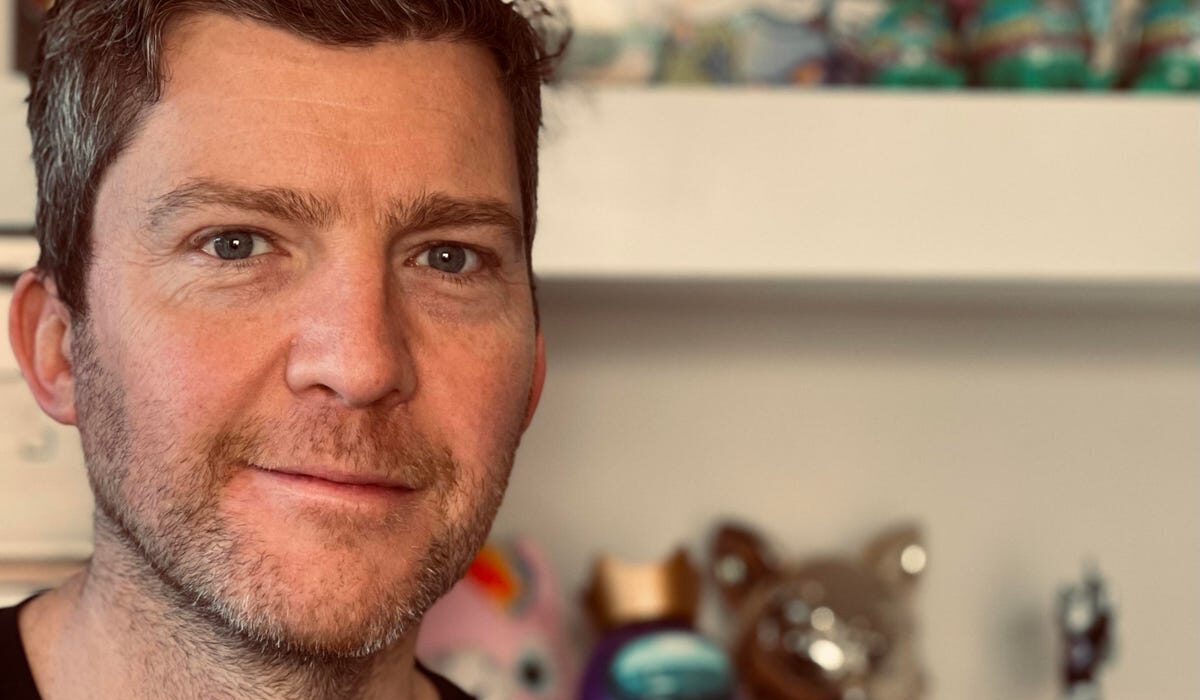The Startup Building A Global Business In The Branded Toys Sector

[ad_1]
Darran Garnham, CEO of Toikido
If you have children – or indeed if your memory stretches back to your own childhood days – then you’re probably aware of the symbiotic relationship between the entertainment industry and the toy manufacturing sector.
Pick just about any major film, TV series or game that appeals to children or young adults and the chances are that branded toys will be available in retail outlets worldwide.
This is lucrative territory for the world’s big toy brands – the likes of Lego, Hasbro and Mattel – and is also good for entertainment producers. Estimates vary but according to Grandview Research, the global toy market was worth $291 billion in 2021, rising to $308 billion the following year. Branded toys are an important component of the overall total.
Those are figures that ought to whet the appetites of entrepreneurs and investors alike. There is, after all, nothing more attractive than a large market. But there is another question to consider. Is the branded toy market open to disruption in any way? Is there a space for entrepreneurs to step in, do things differently and ultimately carve out their own niche?
Darran Garnham is CEO of Toikido, a two-year-old British company that creates toys for entertainment industry brands. As things stand, it is selling into 100 markets around the world through 70,000 or so points of sale.
When I spoke to Garnham, I was keen to ask him about the realities of being a young business competing with well-established toy manufacturers while also having to negotiate with entertainment companies about rendering their two-dimensional assets into three-dimensional products.
A Track Record
As Garnham acknowledges, breaking into the branded toy space is a lot easier if you already have an industry track record. “Prior to starting the company, I worked in retail, entertainment and toys. I ran the Universal Studios brand team,” he says.
So why leave a high-profile and presumably well-remunerated job?
Well, as with so many modern entrepreneurial stories, the pandemic was the catalyst. That was partly because Garnham began to reassess his own priorities, asking himself if he wanted to remain in a job that required a lot of travel away from home and family. But there was a more practical reason. “Big companies were responding to the crisis through furlough schemes and job restructuring. It was a good time to be assembling a team,” he says.
All well and good, but how does a nascent business begin to make a dent in a long-established market? Garnham says his approach was to offer something different to potential partners.
In practical terms, taking a toy concept from design to retail outlet typically takes around 18 months, he says. That’s probably not surprising given the number of balls that have to be juggled. The studios who own the intellectual property have to plan their own campaigns. On top of that, toy deals have to be negotiated and design and manufacturing time have to be factored in.
“We set out to streamline that process,” Garnham says. “And we run Toikido like a tech company.”
So a lot of internal processes have been accelerated, with meeting times kept to a minimum and decisions made quickly. But that leaves the other side of the equation. To reduce time to market by 6-8 months, the IP owners also have to move quickly. Perhaps more quickly than normal. Is that a problem?
More Speed
Garnham says entertainment companies are themselves looking for more speed. He cites a project for Netflix based on a show called Back to the Outback. “They chose us because we were the only ones who could deliver in four months,” he says.
To date, Toikida’s list of media partners includes the aforementioned Netflix, Apple, Roblox and Skydance Animation.
In addition to developing toys with partners, the company is also about to market assets based on its own IP in the shape of Pinata Smashlings, in partnership with PMI and Character Options.
So how has all this been financed? Garnham says he initially sold shares in Calm, a company he invested in. Since then, the business has attracted investment from Gary Vaynerchuk, CEO of U.S,-based media agency, Vaynermedia. The relationship was about more than investment. “We did a project with Gary which saw us putting product into every Macy store in America using his brand,” says Garnham.
All of which sounds ambitious for a business with a small team. The key to getting things done has been relationships with three manufacturing partners and a network of distributors. Again, a background in the industry helped Garnham and his team establish those relationships. Last year sales came in at £60 million, delivering a £4 million profit.
And Garnham sees room to grow. “We would like to be a 200-300 million dollar business by 2025,” he says.
The toy industry is both huge but also – at least in terms of entrepreneur activity – under the radar. But there are, it seems, opportunities to build profitable businesses quickly. That said, for would-be branded toy producers, a background in the sector probably does no harm at all.
[ad_2]
Source link







